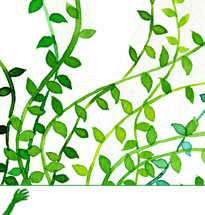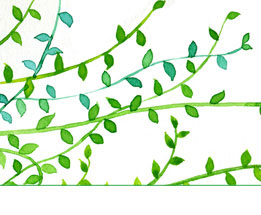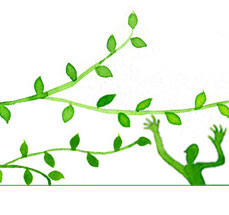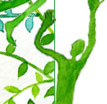마태복음 2020mt14(9:1-17) I Have Come to Call the Sinners
페이지 정보

본문
Lesson 14 Matthew 2020
Verses | Matthew 9:1-17
Key Verse | Matthew 9:13
I Have Come to Call the Sinners
"But go and learn what this means: ‘I desire mercy, not sacrifice.’ For I have not come to call the righteous, but sinners.”
Jesus cured all kinds of diseases, drove out demons, and calmed the wind and waves with His words. Today, Jesus reveals that He has the power to forgive sins on this land. Only God can forgive sin. Jesus is God. Jesus is the Savior who came to save us from sin. Since Adam's fall, man has lived as a slave to sin and Satan. Due to their sins, they were cursed by God, lost their mission, and lived a life for eating and surviving. They have to suffer from various diseases and pains, murder and war, lechery and fraud, lethargy and futility, and then die. Jesus came to this land to free us from sin, which is the root of human suffering. I pray that you will receive Jesus who came to call on sinners at this time and enjoy the grace of forgiveness.
First, “Take heart, son; your sins are forgiven.” (1-8). Jesus stepped into a boat, crossed over and came to his own town, Capernaum. Some men brought to him a paralyzed man, lying on a mat. In Mark Chapter 2, they were unable to enter the house because there were so many people, so they pierced the roof and lowered the paralyzed man before Jesus. But Matthew is skipping these details. He is more focused on Jesus than on people. Jesus saw their faith. Faith is unable to be seen. But the amazing behavior they have taken is something they could not have done without faith. Faith is the reality of what you want. Faith appears as an action. He who comes to God must believe that He rewards those who seek him. Jesus gave a great reward to those who came to Him.
First, Jesus said to a paralyzed man who came out to receive a cure. “Take heart, son; your sins are forgiven.” Jesus first offered forgiveness to this man who came out to cure the paralysis. People pitied and helped him with the apparent paralysis, but Jesus saw that sin was making him suffer more than the disease. People are unhappy not because of poor economy or Covid-19. Each person is suffering from unsolved sins and guilt. Even though the economy has improved and our lives have become more convenient, we are living with more unhappiness than in the past. Jesus first said, “Take heart, son; your sins are forgiven.”, because it is more urgent and important to give this man forgiveness of his sins than to be healed from paralysis.
People with stroke often have general paralysis or hemiplegia due to blockage of cerebral blood vessels. They can't live without someone's help. The man was living with the help of his family and friends who felt sorry for him lying helplessly. Jesus gives a better prize to him, who has come out of faith, even though being healed was also good. He has forgiven his sins. Jesus set him free from the forces of sin. He can live a worse life than ever if he has been cured of a stroke, but hasn't been forgiven for sin. Old habits that have not changed can lead to sin and more severe illness. What is more important than getting better from disease and improving economic conditions is to be forgiven for sin and to live a holy and righteous life. We can be truly happy when we live a life that is condemned, loving each other, and resembling the image of God.
When Jesus declared forgiveness to the paralyzed man, the teachers of law thought in their minds. "This fellow is blaspheming!" Forgiveness of sin is something only God can do. Knowing their thoughts, Jesus said, “Why do you entertain evil thoughts in your hearts? Which is easier: to say, ‘Your sins are forgiven,’ or to say, ‘Get up and walk’? What makes their thoughts evil? They had the idea of suing Jesus for blasphemy. They refused to accept Jesus' words and insisted on their thoughts. It is evil if we insist on our own thoughts rather than God's will and Jesus' words.
How does Jesus help them? See verses 6-8. "6 But I want you to know that the Son of Man has authority on earth to forgive sins.” So he said to the paralyzed man, “Get up, take your mat and go home.” 7 Then the man got up and went home. 8 When the crowd saw this, they were filled with awe; and they praised God, who had given such authority to man." Jesus showed that He had the authority to forgive sins by making the paralyzed man to get up and walk. Nothing in the world will be more pleasant than this. Since Jesus has the power to forgive sin, any wicked sinner can have hope. How touching is it to be able to be forgiven from sins, to associate with God, and to live a holy life in this world? People were afraid to see the paralyzed man rise and walk after being forgiven. This fear is the awe they get in front of God. They turned glory to God, who gave the authority of forgiving the sins and healing the sick to Jesus.
Second, God (9-17), who desires mercy, not sacrifice. As Jesus went on from there, he saw a man named Matthew sitting at the tax collector’s booth. Matthew means God's gift, God's grace. This name must have been given by Jesus. Matthew's real name was Levi. Levi, a descendant of the priest, was a noble tribe who preached and blessed the people. Levi is a tribe that gave everything to serve God. The Levites educated their children thoroughly so that they could learn to serve God, including the recitation of the Bible and the memorial service, from childhood.
This Levi became a tax collector, because there was no hope. The country of Jews became a Roman colony. As a young man, there was no vision when he thought about his future. He decided to live in despair, earning money and enjoying pleasure. In order to make money, tax collector, Levi abandoned his conscience, abandoned his people, and abandoned God. Levi also accepted the words such as a traitor of the nation, a dog of Rome, and a sinner same as whore, in order to make money. He collected money by acting heartlessly as if he were squeezing out a drop of blood from his own people appealing with tears. He is a wicked sinner who changed God for money.
He is the only disciple who wrote about himself when he met Jesus. Usually, a person cannot forget the emotion and excitement when he first met Jesus. But his writings are so simple. See verse 9 again. "As Jesus went on from there, he saw a man named Matthew sitting at the tax collector’s booth. “Follow me,” he told him, and Matthew got up and followed him.” Jesus saw Levi, the tax collector, who worked hard at the booth, disliked to look into the eyes of the people, and deserved to get spit from the shadows passing by. As Jesus told “Follow me.”, he stood up and followed Him. “Follow me” is to live with hope for Jesus as a disciple. It is to not risk your life for money, but to live in hope towards Jesus, who is the way, the truth, and life. It means not to leave your wishes in this land that will rot, but to live in hope of the kingdom of God forever. "Follow me." This voice of Jesus was the voice of salvation for Matthew, the voice of love. He was called the Lord's disciple and followed Him without change since then. He walked a lonely path until he died. In fact, when he lived as a disciple of Jesus, he must have had difficulty adjusting to his colleagues. In the eyes of people like Simon, a hot-blooded member, it is impossible of eating and living on a pot with the tax collector, Levi. Simon must have been uncomfortable with Levi because it was difficult to welcome him.
We can read the atmosphere without difficulty. See verses 10 and 11. "10 While Jesus was having dinner at Matthew’s house, many tax collectors and sinners came and ate with him and his disciples. 11 When the Pharisees saw this, they asked his disciples, “Why does your teacher eat with tax collectors and sinners?”” Matthew invited Jesus and his disciples to his house and presented Him a big feast. It was to celebrate the end of tax collector’s career and to live as a disciple of Jesus. Many tax collectors and sinners were invited to eat together and have a farewell party. They have prepared a place to listen Jesus’ words. When the Pharisees saw this, they condemned Jesus. For Pharisees, dining with tax collectors and sinners is unacceptable. They thought the best way to stop the spread of sin is by separating sinners and not associate with them.
What is Jesus' explanation of the Pharisees' criticism? See verses 12,13. “On hearing this, Jesus said, “It is not the healthy who need a doctor, but the sick. 13 But go and learn what this means: ‘I desire mercy, not sacrifice.’ For I have not come to call the righteous, but sinners.” Here, the healthy people refer to those who themselves as a health people like the Pharisees, and the sick people refer to tax collectors and sinners. As a doctor, Jesus came to cure the sick. Even a sinner can live righteously and healthily by treating the disease of the soul. It is impossible for a sinner to change and become a new person by their own strength. But it is possible to God. Just as the tax collector Levi was called by Jesus and became Matthew, when he is called and born again, he becomes a new man and a new creation. Those who are forgiven of their sins differ in the way they listen to God’s Words and see man and nature. In the eyes of the reborn, the leaves of the trees wave their hands and greets, and the heart that seemed like a millstone becomes light as if it’s flying on the clouds, and the unheard words of God feel sweet like honey. In the indifferent mind, love forms and it is filled with vitality.
Jesus is the one who does not break the bruised reed or snuff out the smoldering wick. Jesus is merciful. He came not to call the righteous, but sinners. Indifferent people like the Pharisees must learn Jesus. We have a self-centered feature that tries to succeed by their own without caring others, and a selfish element that wants to build up our own. We say that we live for the glory of God, but in reality, we strive for our dreams and ideals. They say they are pleasing to God, but they often try to please themselves. When we miss the track in this way, we lose joy in our hearts. In order to enjoy the true joy in our hearts, we need to change our path to Jesus. We must learn the heart of God and Jesus' heart toward sinners. When Jesus sees sinners, he has pity and wants to help, no matter what. We must know the Lord's heart and help those who are weak and deeply ill by sin with compassion.
Third, new wine into new wineskin (14-17). Then John’s disciples came and asked him, “How is it that we and the Pharisees fast often, but your disciples do not fast?” Fasting at that time was considered a measure of godliness. Jesus and his disciples ate and drank with tax collectors and sinners even on the period of fasting. This was also a complaint to John's disciples. What is Jesus' answer to this? See verse 15. Jesus answered, “How can the guests of the bridegroom mourn while he is with them? The time will come when the bridegroom will be taken from them; then they will fast.” Now is the time for Jesus, the Bridegroom, to come and feast. So, we cannot fast at the wedding. Christianity in Jesus is a religion of joy. It is free. But when Jesus is taken away, we must fast. When Jesus is crucified, we must fast. Also, when Jesus is not in our hearts, we must fast.
See verses 16, 17. “No one sews a patch of unshrunk cloth on an old garment, for the patch will pull away from the garment, making the tear worse. 17 Neither do people pour new wine into old wineskins. If they do, the skins will burst; the wine will run out and the wineskins will be ruined. No, they pour new wine into new wineskins, and both are preserved.” When a patch of undshrunk cloth is attached to an old garment, the patch will pull away from the garment. This causes the tear worse than before. New wine is not placed in old wineskin. When new wine is placed in an old wineskin, it will explode as the new wine ferments, causing the old wineskin to burst. Therefore, new wine must be placed in a new wineskin. Even if new wine expands as it ferments, the new wineskin will not burst because it is elastic. Here, ‘a patch of unshrunk cloth’ and ‘New Wine’ refer to a new era and a new life that began with Jesus. The content of that life is the gospel. The gospel is dynamic and lifelike as the new wine. The gospel gives forgiveness of sins and fundamentally transforms people into new ones. The Gospel requires a completely different style and value system of life than before. Therefore, we cannot accept the gospel if we are bound by the existing tradition and value system. The Gospel requires flexibility like a new wineskin. The 'new wineskin' refers to a new community, the discipleship community.
The Pharisees and John's disciples were like old wineskins, bound by traditions and laws. They couldn't accept anything new because their hearts were already hardened. They were strong in their thoughts and self-righteousness, and they did not have the mind to learn. In one word, they were unlikely to grow. So Jesus did not call them disciples. He called the disciples of poor spirits, like the Galilean fishermen and the tax collector, Matthew. They didn't have much to say in person. They didn't have any manners, so they ate grain when they were hungry on their way. They did not wash their hands when eating. They did not fast well. But they were pure and humble in heart. They had a desire to learn and a spiritual wish to grow. The attitude of thought and life was flexible and elasticity. So, they became apostles who absorbed Jesus' teaching like a sponge and grew up and put on the authority of Jesus.
The most dangerous thing in religious life is to be an old wineskin. It is to lose the desire to learn. If people think that they know everything, they can’t put anything new in it. These kinds of people cannot grow. We need to be poor in spirit who realizes their own inadequacies and wants to learn humbly. Heaven comes to such soul. When we live with a new learning heart every day, we will bear fruit and the blessings of God will come.
This society has changed a lot since Corona 19. Non-face-to-face online lectures are becoming more active and routine. If we insist on our past actions, we will be left behind. We have to learn while adjusting to a new environment. And we need to do our best to change before we force people to change or put pressure on them. I have to change then the family and the community will change. We pray that we will find ourselves before God, repent, and be renewed all the time. The essence of the gospel does not change, but the bowl that holds the gospel must change. The nature of the gospel does not change, but the tools to preach the gospel can change. I pray that we will be able to preach the gospel while dealing with the change of era.
Verses | Matthew 9:1-17
Key Verse | Matthew 9:13
I Have Come to Call the Sinners
"But go and learn what this means: ‘I desire mercy, not sacrifice.’ For I have not come to call the righteous, but sinners.”
Jesus cured all kinds of diseases, drove out demons, and calmed the wind and waves with His words. Today, Jesus reveals that He has the power to forgive sins on this land. Only God can forgive sin. Jesus is God. Jesus is the Savior who came to save us from sin. Since Adam's fall, man has lived as a slave to sin and Satan. Due to their sins, they were cursed by God, lost their mission, and lived a life for eating and surviving. They have to suffer from various diseases and pains, murder and war, lechery and fraud, lethargy and futility, and then die. Jesus came to this land to free us from sin, which is the root of human suffering. I pray that you will receive Jesus who came to call on sinners at this time and enjoy the grace of forgiveness.
First, “Take heart, son; your sins are forgiven.” (1-8). Jesus stepped into a boat, crossed over and came to his own town, Capernaum. Some men brought to him a paralyzed man, lying on a mat. In Mark Chapter 2, they were unable to enter the house because there were so many people, so they pierced the roof and lowered the paralyzed man before Jesus. But Matthew is skipping these details. He is more focused on Jesus than on people. Jesus saw their faith. Faith is unable to be seen. But the amazing behavior they have taken is something they could not have done without faith. Faith is the reality of what you want. Faith appears as an action. He who comes to God must believe that He rewards those who seek him. Jesus gave a great reward to those who came to Him.
First, Jesus said to a paralyzed man who came out to receive a cure. “Take heart, son; your sins are forgiven.” Jesus first offered forgiveness to this man who came out to cure the paralysis. People pitied and helped him with the apparent paralysis, but Jesus saw that sin was making him suffer more than the disease. People are unhappy not because of poor economy or Covid-19. Each person is suffering from unsolved sins and guilt. Even though the economy has improved and our lives have become more convenient, we are living with more unhappiness than in the past. Jesus first said, “Take heart, son; your sins are forgiven.”, because it is more urgent and important to give this man forgiveness of his sins than to be healed from paralysis.
People with stroke often have general paralysis or hemiplegia due to blockage of cerebral blood vessels. They can't live without someone's help. The man was living with the help of his family and friends who felt sorry for him lying helplessly. Jesus gives a better prize to him, who has come out of faith, even though being healed was also good. He has forgiven his sins. Jesus set him free from the forces of sin. He can live a worse life than ever if he has been cured of a stroke, but hasn't been forgiven for sin. Old habits that have not changed can lead to sin and more severe illness. What is more important than getting better from disease and improving economic conditions is to be forgiven for sin and to live a holy and righteous life. We can be truly happy when we live a life that is condemned, loving each other, and resembling the image of God.
When Jesus declared forgiveness to the paralyzed man, the teachers of law thought in their minds. "This fellow is blaspheming!" Forgiveness of sin is something only God can do. Knowing their thoughts, Jesus said, “Why do you entertain evil thoughts in your hearts? Which is easier: to say, ‘Your sins are forgiven,’ or to say, ‘Get up and walk’? What makes their thoughts evil? They had the idea of suing Jesus for blasphemy. They refused to accept Jesus' words and insisted on their thoughts. It is evil if we insist on our own thoughts rather than God's will and Jesus' words.
How does Jesus help them? See verses 6-8. "6 But I want you to know that the Son of Man has authority on earth to forgive sins.” So he said to the paralyzed man, “Get up, take your mat and go home.” 7 Then the man got up and went home. 8 When the crowd saw this, they were filled with awe; and they praised God, who had given such authority to man." Jesus showed that He had the authority to forgive sins by making the paralyzed man to get up and walk. Nothing in the world will be more pleasant than this. Since Jesus has the power to forgive sin, any wicked sinner can have hope. How touching is it to be able to be forgiven from sins, to associate with God, and to live a holy life in this world? People were afraid to see the paralyzed man rise and walk after being forgiven. This fear is the awe they get in front of God. They turned glory to God, who gave the authority of forgiving the sins and healing the sick to Jesus.
Second, God (9-17), who desires mercy, not sacrifice. As Jesus went on from there, he saw a man named Matthew sitting at the tax collector’s booth. Matthew means God's gift, God's grace. This name must have been given by Jesus. Matthew's real name was Levi. Levi, a descendant of the priest, was a noble tribe who preached and blessed the people. Levi is a tribe that gave everything to serve God. The Levites educated their children thoroughly so that they could learn to serve God, including the recitation of the Bible and the memorial service, from childhood.
This Levi became a tax collector, because there was no hope. The country of Jews became a Roman colony. As a young man, there was no vision when he thought about his future. He decided to live in despair, earning money and enjoying pleasure. In order to make money, tax collector, Levi abandoned his conscience, abandoned his people, and abandoned God. Levi also accepted the words such as a traitor of the nation, a dog of Rome, and a sinner same as whore, in order to make money. He collected money by acting heartlessly as if he were squeezing out a drop of blood from his own people appealing with tears. He is a wicked sinner who changed God for money.
He is the only disciple who wrote about himself when he met Jesus. Usually, a person cannot forget the emotion and excitement when he first met Jesus. But his writings are so simple. See verse 9 again. "As Jesus went on from there, he saw a man named Matthew sitting at the tax collector’s booth. “Follow me,” he told him, and Matthew got up and followed him.” Jesus saw Levi, the tax collector, who worked hard at the booth, disliked to look into the eyes of the people, and deserved to get spit from the shadows passing by. As Jesus told “Follow me.”, he stood up and followed Him. “Follow me” is to live with hope for Jesus as a disciple. It is to not risk your life for money, but to live in hope towards Jesus, who is the way, the truth, and life. It means not to leave your wishes in this land that will rot, but to live in hope of the kingdom of God forever. "Follow me." This voice of Jesus was the voice of salvation for Matthew, the voice of love. He was called the Lord's disciple and followed Him without change since then. He walked a lonely path until he died. In fact, when he lived as a disciple of Jesus, he must have had difficulty adjusting to his colleagues. In the eyes of people like Simon, a hot-blooded member, it is impossible of eating and living on a pot with the tax collector, Levi. Simon must have been uncomfortable with Levi because it was difficult to welcome him.
We can read the atmosphere without difficulty. See verses 10 and 11. "10 While Jesus was having dinner at Matthew’s house, many tax collectors and sinners came and ate with him and his disciples. 11 When the Pharisees saw this, they asked his disciples, “Why does your teacher eat with tax collectors and sinners?”” Matthew invited Jesus and his disciples to his house and presented Him a big feast. It was to celebrate the end of tax collector’s career and to live as a disciple of Jesus. Many tax collectors and sinners were invited to eat together and have a farewell party. They have prepared a place to listen Jesus’ words. When the Pharisees saw this, they condemned Jesus. For Pharisees, dining with tax collectors and sinners is unacceptable. They thought the best way to stop the spread of sin is by separating sinners and not associate with them.
What is Jesus' explanation of the Pharisees' criticism? See verses 12,13. “On hearing this, Jesus said, “It is not the healthy who need a doctor, but the sick. 13 But go and learn what this means: ‘I desire mercy, not sacrifice.’ For I have not come to call the righteous, but sinners.” Here, the healthy people refer to those who themselves as a health people like the Pharisees, and the sick people refer to tax collectors and sinners. As a doctor, Jesus came to cure the sick. Even a sinner can live righteously and healthily by treating the disease of the soul. It is impossible for a sinner to change and become a new person by their own strength. But it is possible to God. Just as the tax collector Levi was called by Jesus and became Matthew, when he is called and born again, he becomes a new man and a new creation. Those who are forgiven of their sins differ in the way they listen to God’s Words and see man and nature. In the eyes of the reborn, the leaves of the trees wave their hands and greets, and the heart that seemed like a millstone becomes light as if it’s flying on the clouds, and the unheard words of God feel sweet like honey. In the indifferent mind, love forms and it is filled with vitality.
Jesus is the one who does not break the bruised reed or snuff out the smoldering wick. Jesus is merciful. He came not to call the righteous, but sinners. Indifferent people like the Pharisees must learn Jesus. We have a self-centered feature that tries to succeed by their own without caring others, and a selfish element that wants to build up our own. We say that we live for the glory of God, but in reality, we strive for our dreams and ideals. They say they are pleasing to God, but they often try to please themselves. When we miss the track in this way, we lose joy in our hearts. In order to enjoy the true joy in our hearts, we need to change our path to Jesus. We must learn the heart of God and Jesus' heart toward sinners. When Jesus sees sinners, he has pity and wants to help, no matter what. We must know the Lord's heart and help those who are weak and deeply ill by sin with compassion.
Third, new wine into new wineskin (14-17). Then John’s disciples came and asked him, “How is it that we and the Pharisees fast often, but your disciples do not fast?” Fasting at that time was considered a measure of godliness. Jesus and his disciples ate and drank with tax collectors and sinners even on the period of fasting. This was also a complaint to John's disciples. What is Jesus' answer to this? See verse 15. Jesus answered, “How can the guests of the bridegroom mourn while he is with them? The time will come when the bridegroom will be taken from them; then they will fast.” Now is the time for Jesus, the Bridegroom, to come and feast. So, we cannot fast at the wedding. Christianity in Jesus is a religion of joy. It is free. But when Jesus is taken away, we must fast. When Jesus is crucified, we must fast. Also, when Jesus is not in our hearts, we must fast.
See verses 16, 17. “No one sews a patch of unshrunk cloth on an old garment, for the patch will pull away from the garment, making the tear worse. 17 Neither do people pour new wine into old wineskins. If they do, the skins will burst; the wine will run out and the wineskins will be ruined. No, they pour new wine into new wineskins, and both are preserved.” When a patch of undshrunk cloth is attached to an old garment, the patch will pull away from the garment. This causes the tear worse than before. New wine is not placed in old wineskin. When new wine is placed in an old wineskin, it will explode as the new wine ferments, causing the old wineskin to burst. Therefore, new wine must be placed in a new wineskin. Even if new wine expands as it ferments, the new wineskin will not burst because it is elastic. Here, ‘a patch of unshrunk cloth’ and ‘New Wine’ refer to a new era and a new life that began with Jesus. The content of that life is the gospel. The gospel is dynamic and lifelike as the new wine. The gospel gives forgiveness of sins and fundamentally transforms people into new ones. The Gospel requires a completely different style and value system of life than before. Therefore, we cannot accept the gospel if we are bound by the existing tradition and value system. The Gospel requires flexibility like a new wineskin. The 'new wineskin' refers to a new community, the discipleship community.
The Pharisees and John's disciples were like old wineskins, bound by traditions and laws. They couldn't accept anything new because their hearts were already hardened. They were strong in their thoughts and self-righteousness, and they did not have the mind to learn. In one word, they were unlikely to grow. So Jesus did not call them disciples. He called the disciples of poor spirits, like the Galilean fishermen and the tax collector, Matthew. They didn't have much to say in person. They didn't have any manners, so they ate grain when they were hungry on their way. They did not wash their hands when eating. They did not fast well. But they were pure and humble in heart. They had a desire to learn and a spiritual wish to grow. The attitude of thought and life was flexible and elasticity. So, they became apostles who absorbed Jesus' teaching like a sponge and grew up and put on the authority of Jesus.
The most dangerous thing in religious life is to be an old wineskin. It is to lose the desire to learn. If people think that they know everything, they can’t put anything new in it. These kinds of people cannot grow. We need to be poor in spirit who realizes their own inadequacies and wants to learn humbly. Heaven comes to such soul. When we live with a new learning heart every day, we will bear fruit and the blessings of God will come.
This society has changed a lot since Corona 19. Non-face-to-face online lectures are becoming more active and routine. If we insist on our past actions, we will be left behind. We have to learn while adjusting to a new environment. And we need to do our best to change before we force people to change or put pressure on them. I have to change then the family and the community will change. We pray that we will find ourselves before God, repent, and be renewed all the time. The essence of the gospel does not change, but the bowl that holds the gospel must change. The nature of the gospel does not change, but the tools to preach the gospel can change. I pray that we will be able to preach the gospel while dealing with the change of era.
첨부파일
-
2020mt14m-eng.docx (20.7K)
0회 다운로드 | DATE : 2020-07-05 14:23:35
댓글목록
등록된 댓글이 없습니다.















